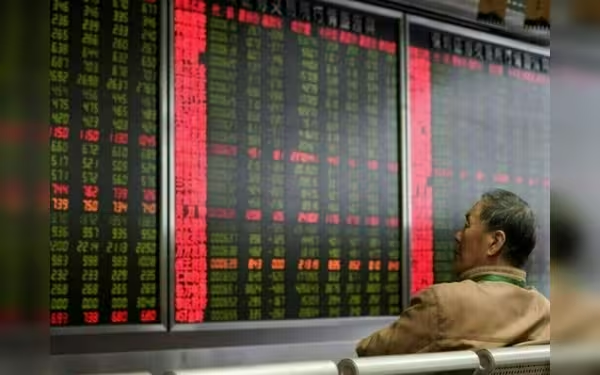Saturday, November 16, 2024 05:29 PM
Chinese Markets Surge Post Holiday Amid Stimulus Optimism
- Chinese markets hit two-year highs after holiday.
- CSI300 index rose 10%, Shanghai Composite up 9.7%.
- Investors eye upcoming press conference for stimulus insights.
 Image Credits: brecorder
Image Credits: brecorderChinese financial markets rebound with shares soaring, driven by government stimulus and investor optimism.
Chinese financial markets have made a remarkable comeback following a week-long holiday, with shares soaring to two-year highs. This surge is largely attributed to investor optimism surrounding government stimulus measures aimed at bolstering the economy. The blue-chip CSI300 index experienced a significant increase of 10% in early trading, reaching its highest point since mid-2022. Similarly, the Shanghai Composite index rose by 9.7%, marking its best performance since December 2021.
However, not all markets shared this enthusiasm. Hong Kong's Hang Seng index, which had reached a 2.5-year high just a day earlier, faced a decline of 2.8%. Additionally, the Chinese yuan fell sharply to 7.0502 per dollar, and five-year bond futures dropped to their lowest levels since July. Investors are now closely watching a press conference scheduled by the National Development and Reform Commission, which is expected to provide further insights into the stimulus measures that have fueled this market frenzy.
Prior to the holiday, China unveiled its most aggressive stimulus measures since the onset of the pandemic, resulting in a remarkable 25% gain for the CSI300 over just five trading sessions. This surge in trading activity led to heavy buying, which strained brokers and trading systems. Notably, both the CSI300 and the Shanghai Composite recorded their largest gains since 2008 last Monday.
In response to the economic challenges, Chinese authorities have implemented interest rate cuts and hinted at fiscal support to stabilize an economy that is struggling by Chinese standards. Hedge fund manager David Tepper expressed his confidence in the market's recovery, stating on CNBC that he would buy "everything" related to China. However, the substantial gains have prompted some analysts to advise caution.
Bank of America analysts noted that China's weighting in the MSCI Emerging Markets Index has increased from 24% in August to 30% currently. They warned that while the market's continued outperformance may create a self-reinforcing "pain-trade" before the year-end, the "buy everything" phase may soon come to an end. Factors such as market momentum, fiscal support, earnings reports, the upcoming US election, and further policy adjustments will all play a crucial role in shaping the market's future.
While the recent rally in Chinese markets is undoubtedly impressive, investors should remain vigilant. The landscape is shifting, and with potential profit-taking on the horizon, it is essential to stay informed and consider the broader economic context. As the situation evolves, keeping an eye on consumer, property, and broker stocks may prove beneficial, while big-cap internet and high-yield state-owned enterprises could offer preferred exposure. The coming weeks will be critical in determining whether this bullish trend can be sustained or if caution will prevail.













